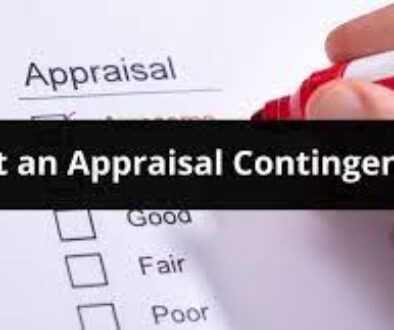Closing Documents
Closing Documents
What Are Closing Documents?
There are several documents you will need to bring along with you or sign at closing. The papers may differ slightly from state to state because property issues are a matter of state law. Check with your real estate agent or attorney to see if your state has additional requirements.
Proof Of Homeowners Insurance
Before closing, you must provide your lender proof of homeowners insurance. Lenders want to make sure the home is insured, so their investment is protected if something were to happen to the home. You’ll need to contact your insurance company a few days before closing to ensure that they have the home’s accurate details and can provide proof of insurance for the lender.
Closing Disclosure
A Closing Disclosure outlines all the terms of your loan, so you know exactly what you’re getting when you sign your mortgage. By law, home buyers must receive a copy of the Closing Disclosure at least 3 business days before closing.
Buyers should take the time to thoroughly review these documents to understand the details of the loan terms, conditions, payments and funds required to close. By closely reviewing the Closing Disclosure, buyers will understand what they’re signing. If there are changes that need to be made, it could delay the closing process.
Loan Application
When you first applied for a loan, you completed an applicaton. Before you close, you’ll receive a new copy of that initial loan application you filled out. You’ll review and sign your original application. Please make sure you also review all of the application information to ensure it’s still correct.
If your financial circumstances have changed since your original application, you must let the lender know. Suppose a buyer lost their job or has taken out another line of credit, for example. In this case, the borrower will have to inform the lender of these changes.
Loan Estimate
Your initial loan estimate may be included in the paperwork. This will cover terms, the interest rate, closing costs, and the cost of obtaining the mortgage overall. If included, you’ll also receive this document within 3 business days of the closing of your home.
Mortgage or Deed Of Trust
A mortgage or a deed of trust is a type of security instrument, and which one you’ll encounter depends entirely on the state where you live. The difference becomes important if there’s a mortgage default. If you default on a mortgage, foreclosure usually requires a court order. A deed of trust doesn’t.
The mortgage or deed of trust legally securitizes your property as collateral for the mortgage. In other words, signing the document means you’re agreeing to use your house as collateral.
This document is recorded along with the deed in the county recorder’s office, which shows the lender owns an interest in the property up to the loan’s outstanding balance. Essentially, it gives the lender the right to foreclose or sell the home at any time if you don’t make your payments.
Mortgage Note
A mortgage note legally binds you to repay the mortgage. The mortgage note includes the amount, interest, payment dates, terms and information on what will happen if you fail to make payments. The mortgage note is securitized with the mortgage, which means that if you default, your house will be sold to repay the debt.
The mortgage note often accompanies a promissory note which outlines how you need to pay back the loan to the lender. The promissory note will also outline financial details of repayment, such as your interest rate and payment method.
Initial Escrow Statement
An initial escrow statement outlines the payments on taxes and insurance that will come from your escrow account during the first year of your mortgage. Your escrow account is used to make payments on your behalf. An escrow account may or may not be required.
Transfer Of Tax Declarations
Depending on the state you live in, you may have to sign paperwork that discloses your home’s sale price and the sales tax you owe.
Certificate Of Occupancy
If you’re moving into a newly constructed home, a certificate of occupancy is required before you can live in the house. This document should be included with the home buying package from your builder. This document verifies that you are moving your family into a safe, structurally sound home.
Title Documents
When you think you have signed enough paperwork, the title company and escrow will give you a few more documents to sign. The primary title document is the title insurance commitment. This document shows who owns the home and any liens or other clouds on the title.
If you have hired an attorney, they will review the title documents to ensure the title is as promised and it’s acceptable to move forward. If you’re relying on the escrow company, they will review the documents to ensure they are in good order.
If the title is not up to par, the seller may have to pay off additional liens. Any delays may halt or prolong the closing process.
Deed
A deed details everything about the property. It transfers the title from the seller to the buyer and is signed by the seller. Your state law will determine the form and language for the deed. However, you can choose the form of ownership either individually, in trust, in joint tenancy, or other tenancies.
The county office of the recorder archives the deed information and makes it public. Therefore, if anyone were to look up the deed on your home, they would find that you took the title from the previous owner, and now you own the property.




